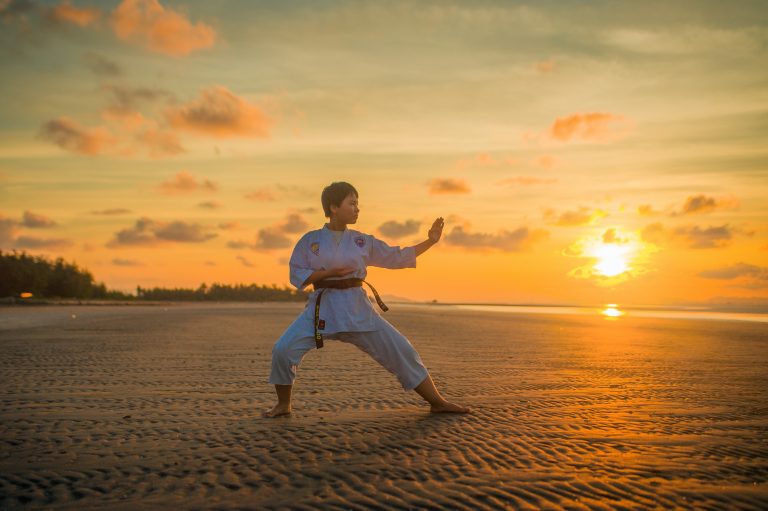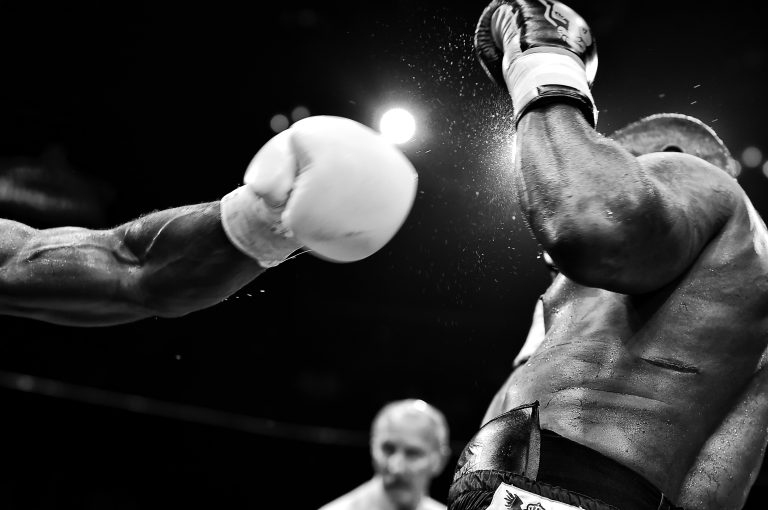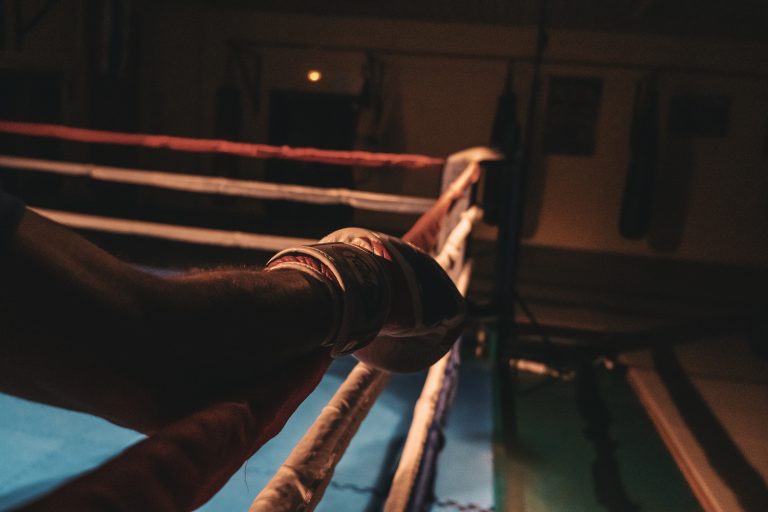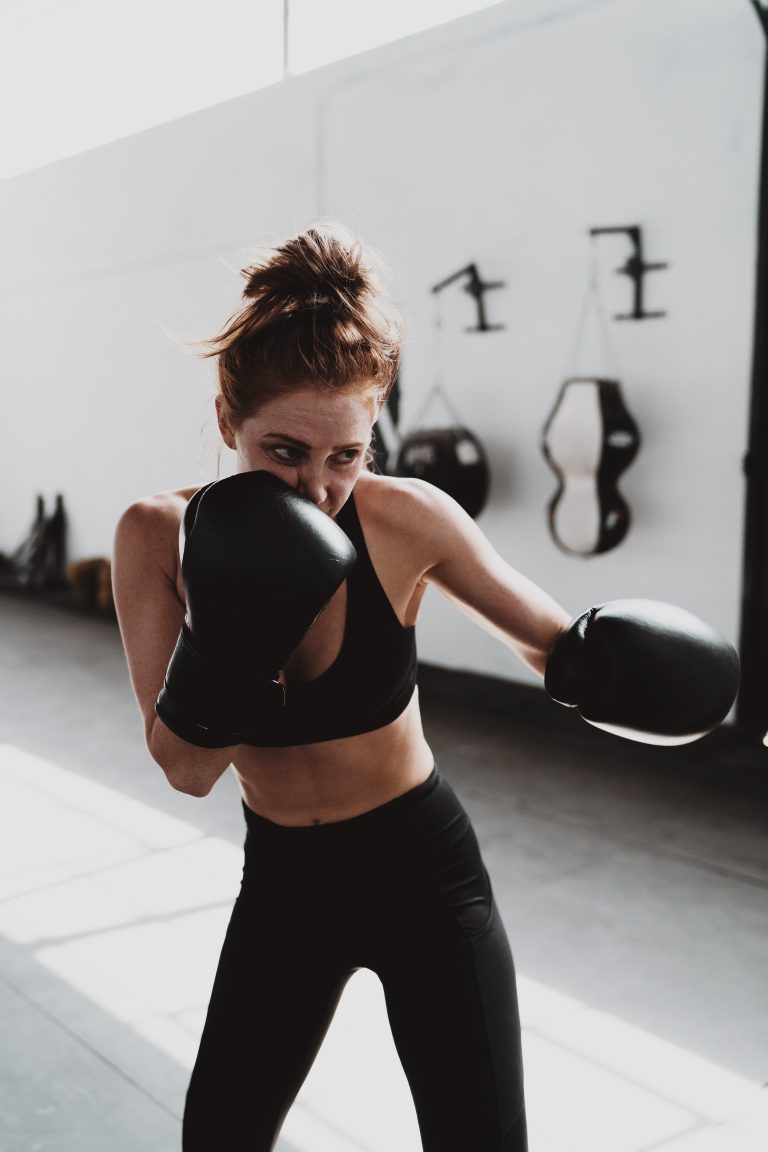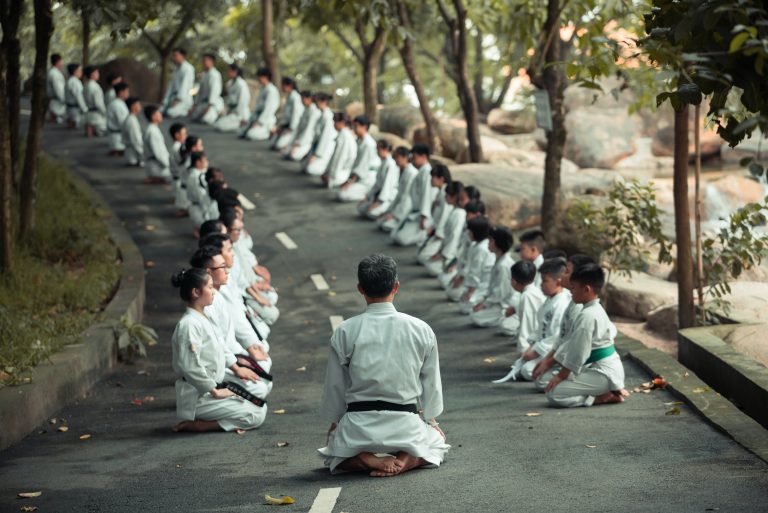Proteinpulver als Ergänzung zum Karate-Training: Dosierung und Anwendung
Karate ist eine Kampfkunst, bei der es um körperliche Fitness und Ausdauer geht. Die richtige Ernährung spielt dabei eine entscheidende Rolle. Aus diesem Grund greifen viele Karateka auf Nahrungsergänzungsmittel wie Proteinshakes zurück. In diesem Blogbeitrag erfährst du alles über die Dosierung und Anwendung von Proteinpulver im Karate-Training.
Was ist Protein?
Protein, auch Eiweiß genannt, ist ein wichtiger Bestandteil unserer Ernährung. Es ist für den Aufbau und die Reparatur von Muskeln, Knochen und Haut verantwortlich. Proteine bestehen aus Aminosäuren, die unser Körper nicht selber produzieren kann. Deshalb ist es wichtig, dass wir sie durch unsere Nahrung aufnehmen.
Warum brauchen Karateka Protein?
Karateka benötigen, genau wie andere Athleten, eine ausgewogene Ernährung mit ausreichend Protein. Durch das Training werden Muskeln beansprucht und Proteine werden für den Aufbau, die Reparatur und Regeneration der Muskeln benötigt. Protein ist also essenziell für einen erfolgreichen Trainingsprozess.
Was ist Proteinpulver und wie funktioniert es?
Proteinpulver ist ein Nahrungsergänzungsmittel in pulverisierter Form, das in der Regel aus Milchproteinen, wie Whey oder Casein, oder aus pflanzlichen Proteinen, wie Soja oder Erbsen, hergestellt wird. Es ist eine bequeme Möglichkeit, um eine ausreichende Menge an Protein zu sich zu nehmen.
Proteinpulver kann als Shake zubereitet oder in Gerichte gemischt werden. Whey-Protein ist besonders schnell verdaulich und eignet sich gut für die Regeneration nach dem Training. Casein-Protein hingegen wird langsamer verdaut und kann somit den Körper über einen längeren Zeitraum mit Proteinen versorgen.
Wie viel Proteinpulver pro Tag?
Eine ausgewogene Ernährung ist grundsätzlich ausreichend, um den Proteinbedarf zu decken. Wer jedoch intensiv trainiert oder Schwierigkeiten hat, genügend Protein aufzunehmen, kann Proteinpulver als Ergänzung nutzen. Die empfohlene Tagesdosis an Protein liegt bei etwa 0,8 Gramm pro Kilogramm Körpergewicht.
Die Menge an Proteinpulver, die pro Tag eingenommen werden sollte, ist von verschiedenen Faktoren abhängig, wie zum Beispiel dem Trainingsumfang oder dem Körpergewicht. Als Faustregel gilt jedoch, dass nicht mehr als 2 Gramm Protein pro Kilogramm Körpergewicht eingenommen werden sollte.
Wann sollte ich Proteinpulver einnehmen?
Proteinpulver kann sowohl vor als auch nach dem Training eingenommen werden. Vor dem Training kann es helfen, den Körper mit ausreichend Energie zu versorgen und während des Trainings aufgenommene Muskelschäden zu reparieren. Nach dem Training sorgt es für eine schnelle Regeneration und liefert dem Körper die notwendigen Nährstoffe.
Fazit
Proteinpulver ist eine bequeme Möglichkeit, um eine ausreichende Menge an Protein aufzunehmen. Es eignet sich besonders gut für Karateka, die intensiv trainieren und ihren Proteinbedarf nicht allein durch die Ernährung decken können. Dabei ist es wichtig, die empfohlene Tagesdosis nicht zu überschreiten und das Proteinpulver gezielt vor oder nach dem Training einzunehmen.
Proteinpulver als Ergänzung zum Karate-Training: Dosierung und Anwendung
If you are a Karate athlete or a fitness enthusiast, you might have heard about protein supplements. Protein is one of the essential macronutrients your body needs to build and repair muscles, and it is particularly important for athletes who train intensively. This is where protein supplements such as protein powder comes into play. Protein powder is an affordable, convenient, and efficient way to supplement your daily protein intake. In this blog post, we will answer some of the most frequently asked questions regarding protein powder as a supplement to Karate training.
What is protein powder, and why is it important for Karate athletes?
Protein powder is a dietary supplement that comes in a powdered form, typically made from whey, casein, soy, pea, or hemp protein. It is a concentrated source of protein that can be easily mixed with water or other fluids to make protein shakes. Protein powder provides a quick and convenient way to supplement your daily protein intake, especially for athletes who need to consume more protein to support their training and recovery.
For Karate athletes, protein powder is particularly important because Karate training involves a lot of high-intensity movements that cause muscle damage. Consuming enough protein can help repair and rebuild these damaged muscles, promoting muscle growth and recovery. In addition, protein powder can also help improve muscle endurance, reduce muscle soreness, and boost overall performance.
What is the recommended dosage of protein powder for Karate athletes?
The recommended daily protein intake for athletes is typically higher than that for sedentary individuals. The International Society of Sports Nutrition recommends that athletes consume between 1.4-2.0 grams of protein per kilogram of body weight per day, depending on the intensity and frequency of their training.
When it comes to protein powder, the recommended dosage may vary depending on the type of protein powder you use and your individual needs. As a general rule, most protein powders come with a recommended serving size, which typically ranges from 20-30 grams of protein per serving. You can use this as a starting point and adjust your dosage based on your protein needs and training intensity.
What is the best time to consume protein powder?
The timing of protein consumption is also an essential factor to consider when using protein powder as a supplement. Many athletes prefer to consume protein powder immediately following their workout to help kickstart muscle recovery and growth. However, research suggests that protein intake spread evenly throughout the day may be more beneficial for muscle protein synthesis.
Therefore, it is recommended to consume protein powder at regular intervals throughout the day, such as in the morning, before and after workout, and before bed. This way, you can ensure that your body has a steady supply of amino acids to support muscle growth and recovery.
What are the different types of protein powder, and which one is the best for Karate athletes?
Protein powder comes in various types, such as whey, casein, soy, pea, and hemp protein. Each type of protein powder has its benefits and drawbacks, and the right one for you depends on your individual needs and preferences.
Whey protein is the most popular type of protein powder, as it is easily digestible, affordable, and has a complete amino acid profile. Casein protein is another popular option that is slow-digesting, making it a good option for a nighttime protein shake. Soy protein is a plant-based alternative to whey and casein, making it a great option for vegan athletes. Pea protein is another plant-based alternative that is easy to digest and can benefit athletes with digestive issues. Hemp protein is another vegan option that is rich in omega-3 fatty acids.
As a Karate athlete, it is essential to choose a protein powder that meets your individual protein needs and preferences. You can experiment with different types of protein powder to find one that works best for you.
Are there any potential side effects of protein powder?
Protein powder is generally considered safe for healthy individuals when consumed in moderation. However, excessive protein intake, especially from supplements, can lead to potential health problems, such as kidney damage, liver damage, and dehydration.
It is important to follow the recommended dosage and consume protein powder as a supplement to a balanced diet that contains plenty of whole foods. Additionally, you should drink enough water to prevent dehydration and avoid excessive intake of supplements.
Conclusion
Protein powder can be a safe and effective way to supplement your Karate training and support muscle growth and recovery. It is essential to choose the right type of protein powder for your individual needs, follow the recommended dosage, and consume it alongside a balanced diet and regular exercise. With proper use, protein powder can help you achieve your Karate training goals and become a better athlete.
Inhaltsverzeichnis


